House Cats Can Wreak Havoc on Wildlife — Here’s How to Let Them Thrive Indoors
Updated Dec. 9 2022, 3:40 p.m. ET

Pet parenting inevitably raises your environmental impact. The pet food industry is infamously environmentally destructive, pet toys are often short-lived, and most pet products come with unsustainable packaging. But beyond that, certain pets affect their surrounding environments differently.
Outdoor cats, for example, can have a negative impact on wildlife — it's up to you to learn how cats impact wildlife, and how to give them the outdoor experience indoors.
"In general, it can be absolutely acceptable to house your cat completely indoors as long as you take some simple steps to provide everything your cat needs to mentally and physically thrive. Domestic cats (who are not naturally part of an ecosystem) can be extremely destructive to the environment — we are willingly releasing predators into an environment where they are not naturally supposed to be," Rachel Salant, Animal Behavior Specialist at Veterinarians.org, stated in a press release.
"In addition, domestic cats can become the prey of other animals (like coyotes) or become victims to collisions with cars," Salant continued. "For all these reasons, it's imperative that cat parents do everything they can to provide a stimulating environment inside where cats can thrive."
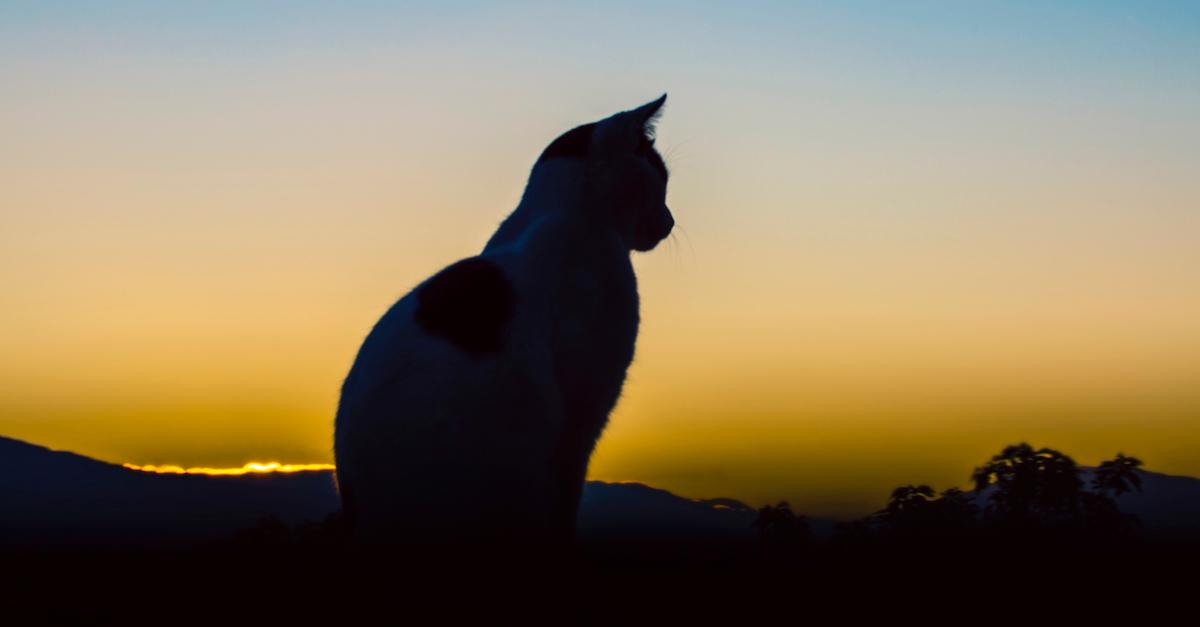
There are ways to make sure your house cat coexists with your local ecosystem.
Researchers at the University of Maryland recently conducted a study which looked at both feral and domestic activity in the D.C. area. Using 60 wildlife cameras, they were able to better understand how cats interact with wildlife.
The data showed that cats have overall pretty negative interactions with most wildlife. These kinds of interactions can lead to predation of native mammals, the spread of zoonotic disease — and not to mention, it can put your cat in serious danger.
That's why Salant has offered a few ways that you, as a pet parent, can ensure your outdoor cat isn't taking a toll on your local ecosystem. You can bring everything your cat loves about the great outdoors, indoors.
Provide mental stimulation at home.
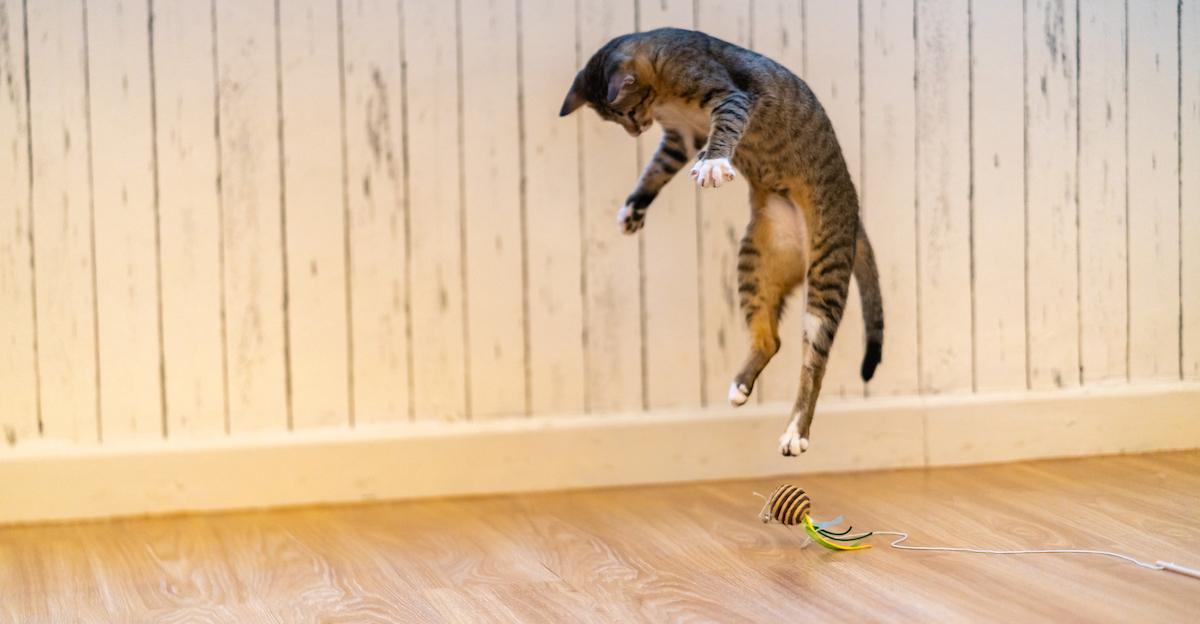
Mental stimulation for cats is important — not only to keep your cat happy, but also to deter them from wanting to hunt outside your home. That said, Salant recommends providing your fur baby with experiences that satiate their natural instincts, as hunters. To do so, give them food puzzles, or make time for play in the morning or at night.
Maintain at least one clean litter box.
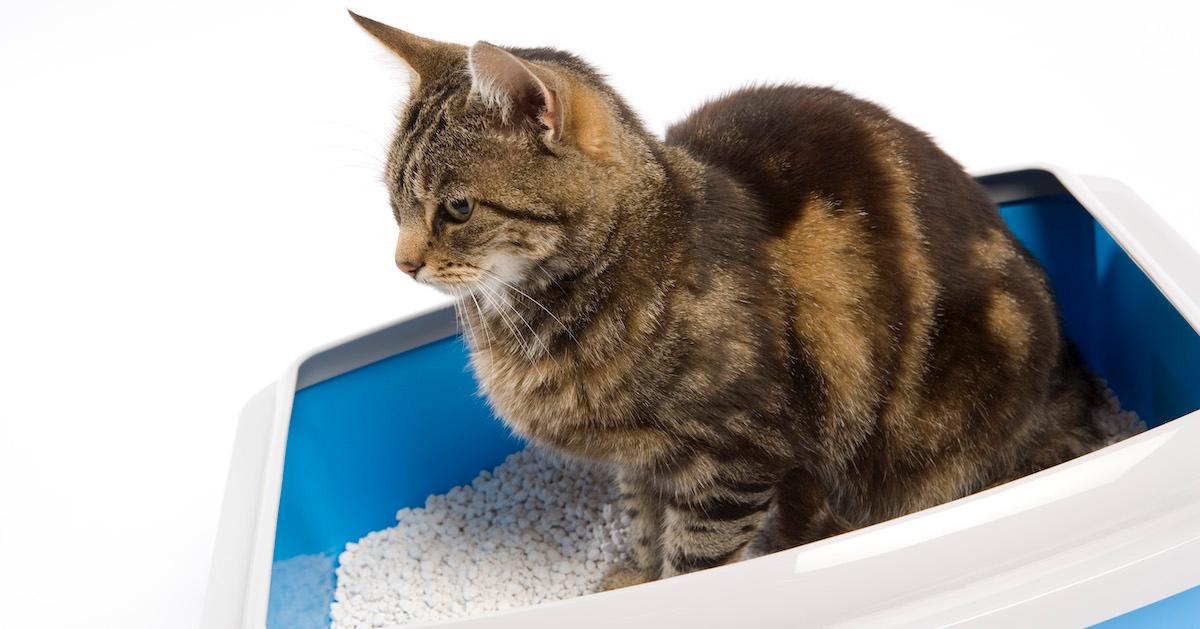
Salant recommends that parents of outdoor cats make sure they're maintaining at least one clean litter box... if not several! Cats are notoriously clean animals, and they often won't use a dirty litter box. Holding in their waste can cause serious health problems, and if they aren't going outside, they won't have anywhere to go.
Provide them with scratching outlets.
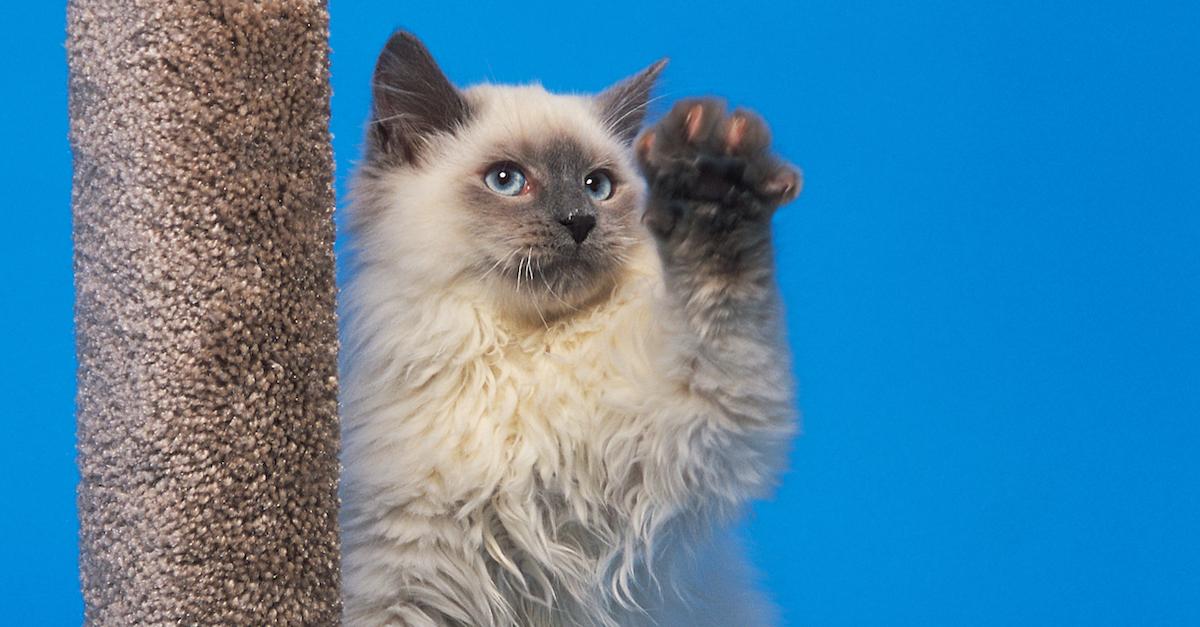
Scratching posts not only make your cat's nails look "on fleek," but they also release feel-good hormones that are good for kitty's health. It also satisfies your cat's hunting instinct — so they hopefully won't be hunting down any small native species (unless you have mice in your house!).
Provide basking opportunities
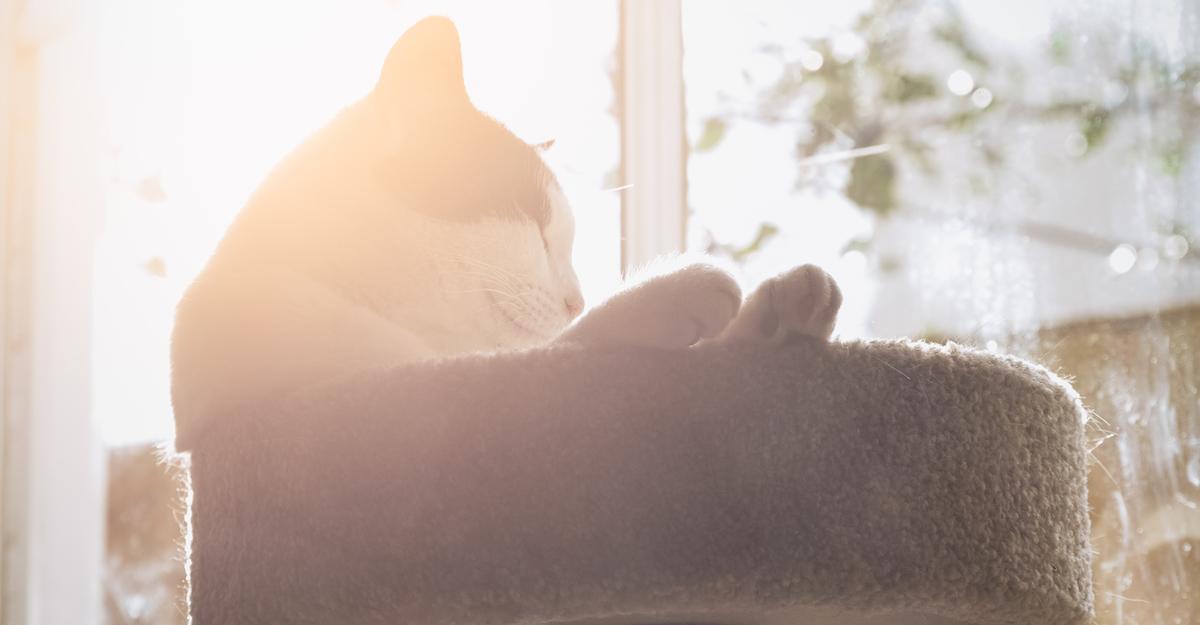
Salant recommends giving your feline friend either a comfortable resting spot by a window, or a heated space with a UV bulb. Cats thoroughly enjoy basking, which is mostly what they're doing outside, when they aren't hunting small animals. So if you'd rather not have your cat outside, this is a great way to stimulate the great outdoors for them, minus the added danger.
You can also bring novel scents in from the outside for your cat to explore
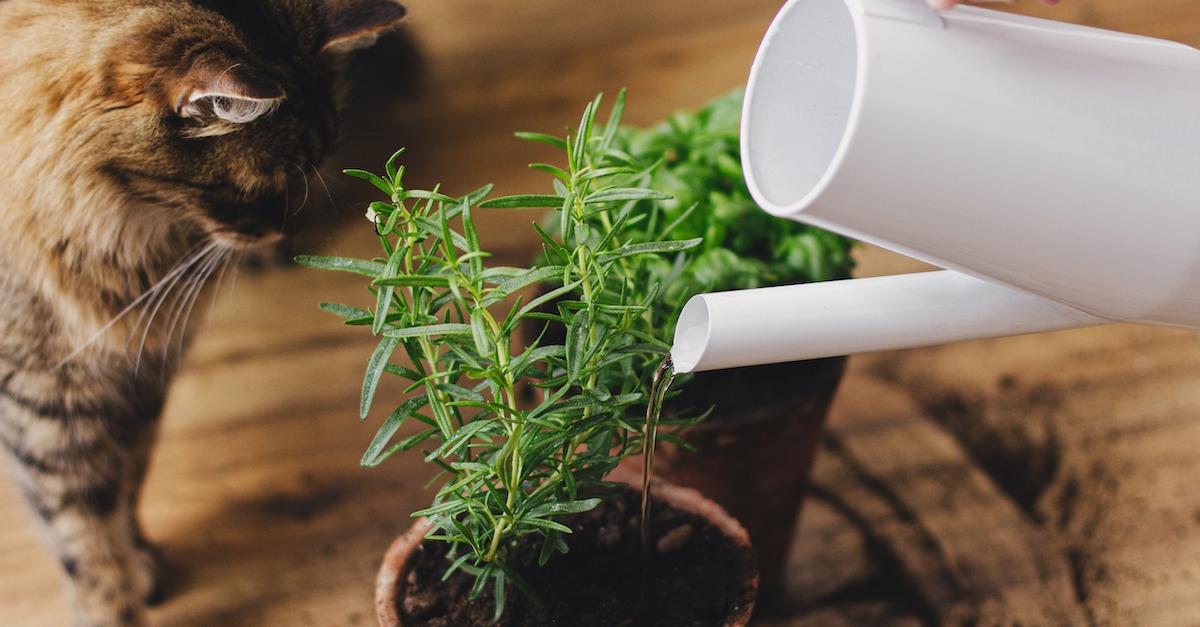
Another way to bring the outdoors to your cat is by bringing outdoor scents for them to explore. Take a pine tree branch inside and let them bat it around. Maybe consider letting them explore a small leaf pile.
While cats do enjoy the outdoors, it isn't always what's best for the environment and your kitty.